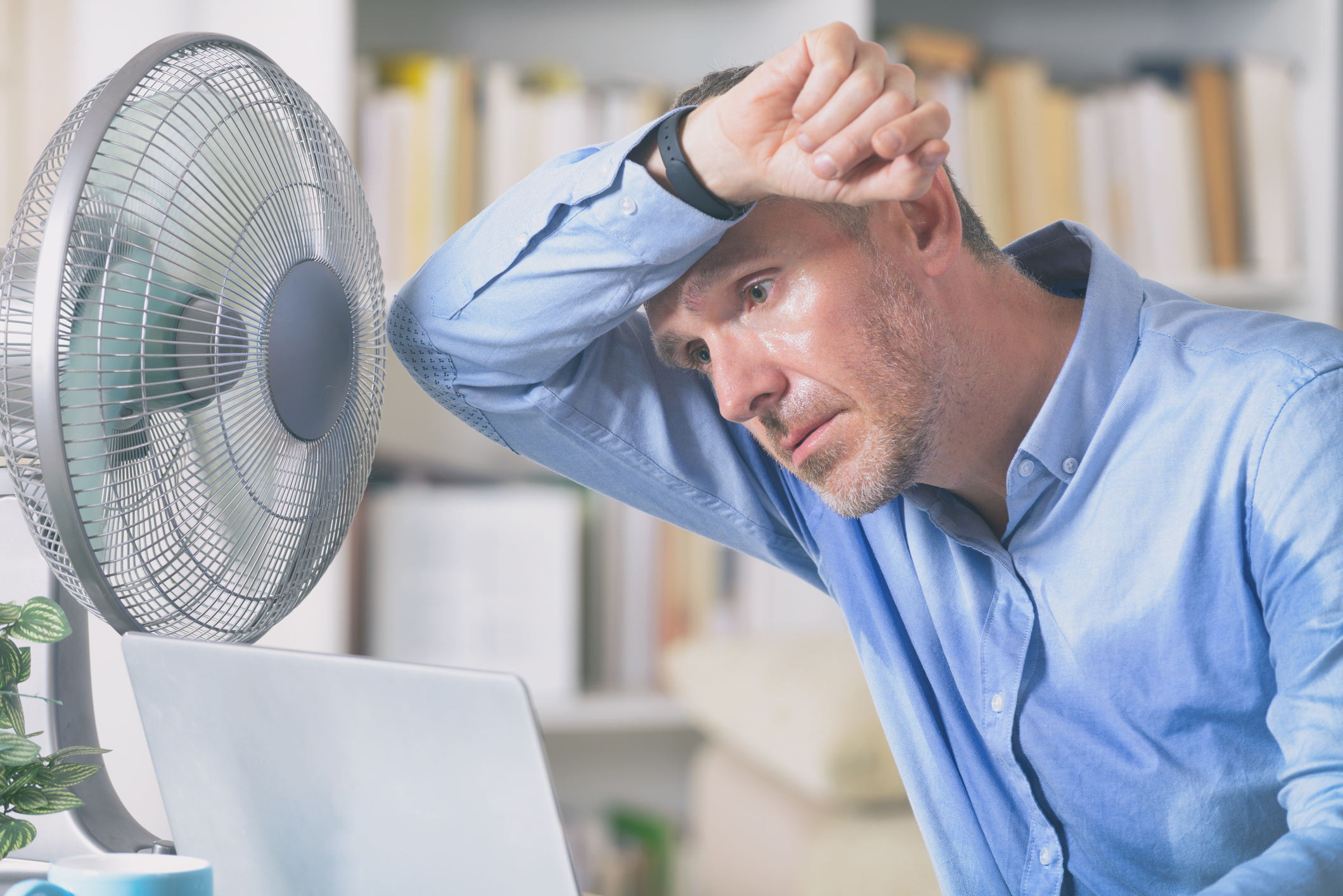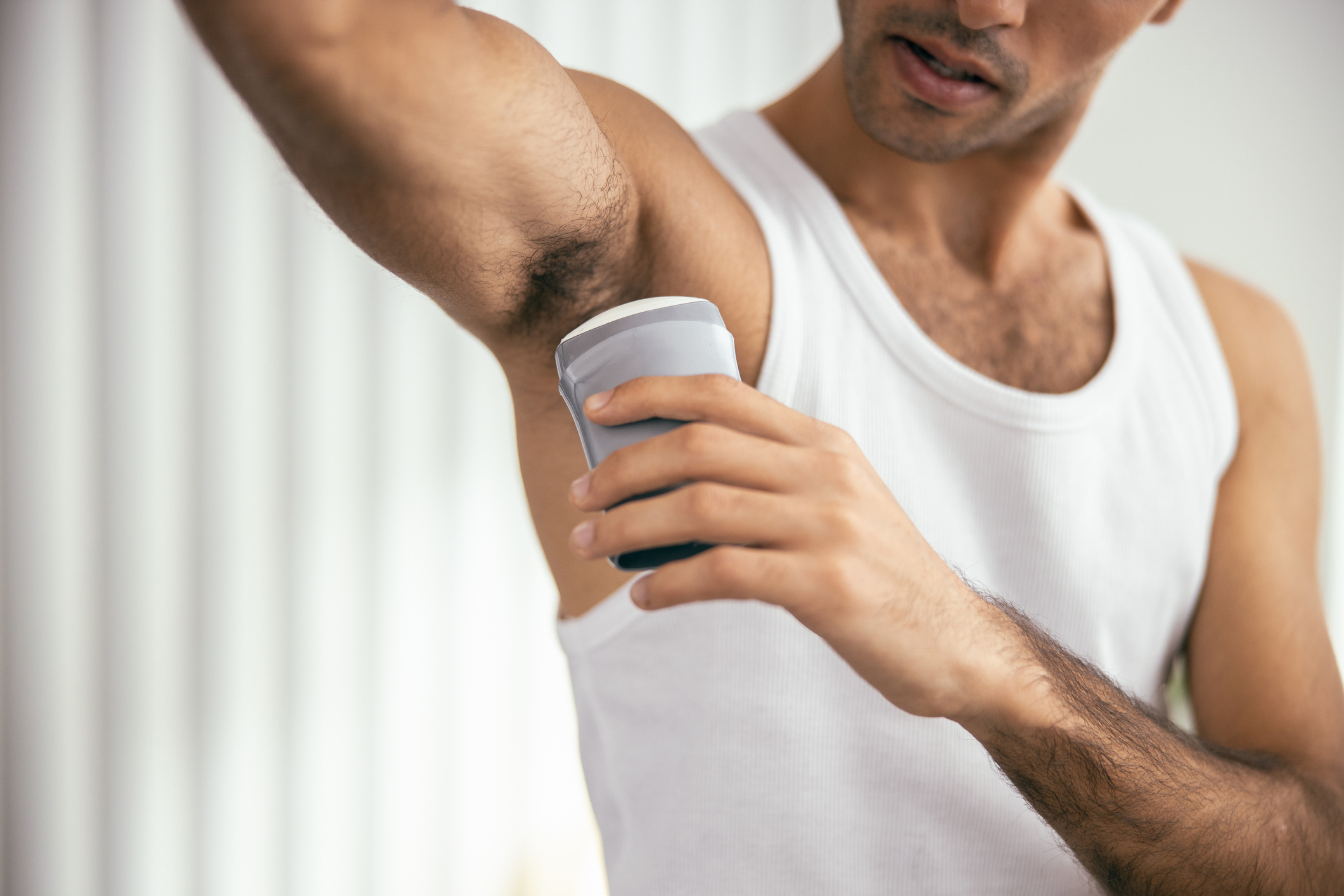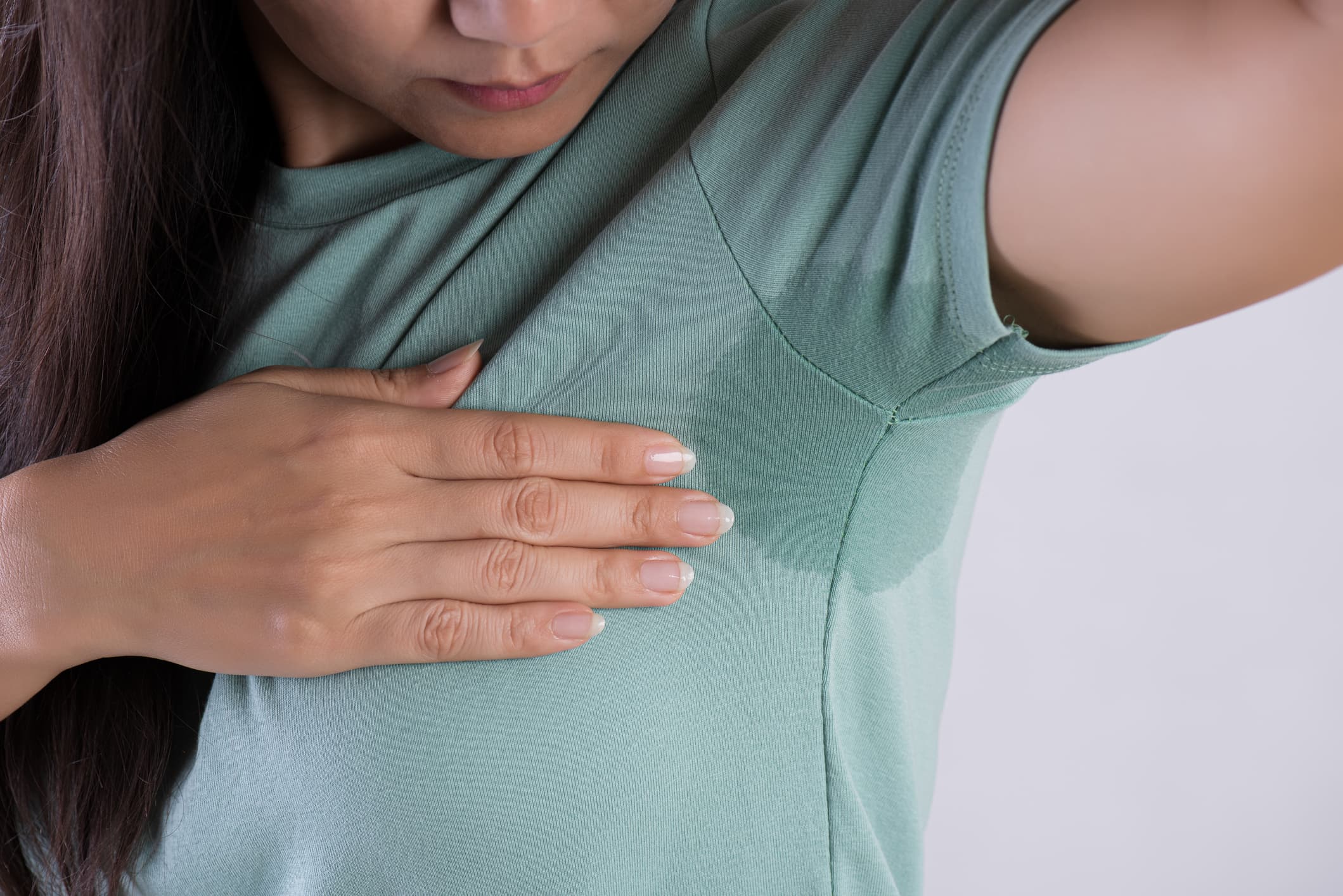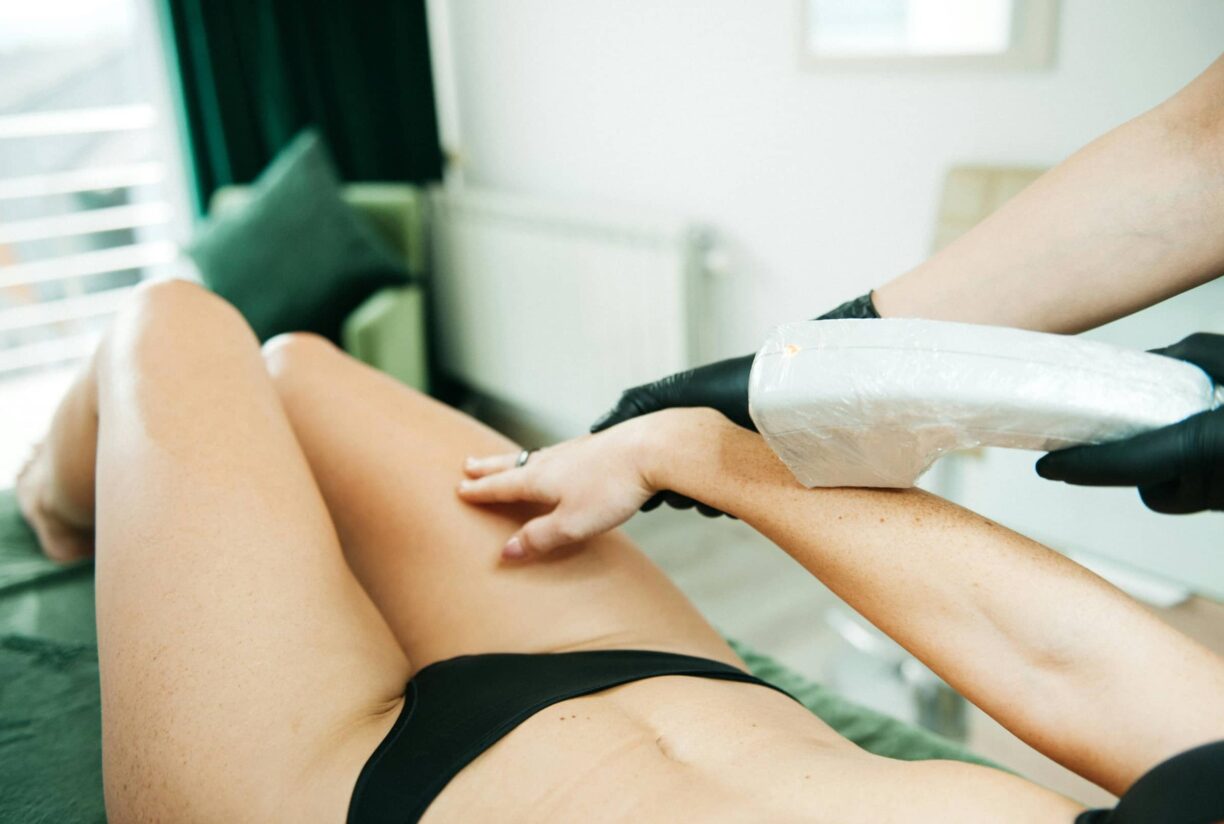With summer ending, many of us are breathing a sigh of relief that the sticky and uncomfortable weather’s coming to an end.
But if you suffer with excessive sweating, pit stains aren’t just an issue on stiflingly hot days – they can strike all year round and have a significant impact on your day-to-day confidence.

Chronic sweating, also known as hyperhidrosis, is estimated to affect between 1-5% of the population. So what exactly is excessive sweating, and what can you do about it?
Why do we sweat?
Sweating is a completely normal bodily function that happens if you’re feeling hot or taking part in physical exercise.
“Sweating is your body’s natural way of cooling you down and controlling your body temperature,” explains pharmacist Navid Sole. “Most sweat evaporates from our skin and takes the excess heat with it, while the rest drips down our face and body.”
We tend to have around three million tiny sweat glands on the body, says Healthspan medical director, Dr Sarah Brewer (healthspan.co.uk), who explains that the most common type are eccrine glands.
“These open directly onto the skin surface – especially on the palms and soles of the feet. As well as secreting water and salts during overheating and exercise, they also become active when you are under stress or [experiencing] anxiety.”

Apocrine glands open into the hair follicles. These only become ‘switched on’ at puberty and are mainly found in the armpits and groin, says Brewer. They also play a role in physical attraction, as they secrete a fatty fluid containing powerful pheromones.
That being said, it’s a misconception that sweat is smelly. Sweat is virtually odourless to humans – it only begins to harbour that telltale ‘B.O.’ smell when it dries onto your clothes and body and bacteria begins to multiply in the area.
Is sweating ever a ‘bad’ thing?
According to Dr Brewer, the average person produces around a litre of perspiration per day – and this can rise in hot conditions, or when taking on a sweaty gym class.
While sweating a ‘normal’ amount is an essential body function, sweating too much or too little can be a sign of health issues.

“Unexplained excessive sweating could be caused by anxiety and stress, an over-active thyroid gland or a hidden infection, so if the problem persists or is getting worse, always consult your doctor,” says Brewer.
Not surprisingly, visible sweating that soaks through clothing or leaves you with damp, clammy skin can cause considerable emotional, social and professional distress.
Those affected may “feel hot, itchy and uncomfortable, and may have to deal with embarrassing wetness under the arms or in the groin, and sticky, uncomfortable skin flexures that are prone to chaffing, soreness and fungal infections,” says Brewer. “You might be forced to shower during the day, and to keep changing out of wet or smelly clothes.”
Plus, anxiety about visible dampness and body odour can impact people’s confidence at work, on dates, or out socialising, she adds.
What causes excessive sweating?
When it comes to chronic excessive sweating, sweat glands can produce excessive sweat if nerve endings in the area become over-active, but Brewer says exactly why this happens is still a bit of a mystery.

“Hyperhidrosis affects an estimated 1-5% of the population and there is a family history in 30-50% of cases, suggesting a genetic association,” Brewer adds. “It can occur at any stage of life, with a peak age of onset between 15-18 years.”
Sole says that a sudden onset of sweating can be a side effect from some medications too, so if you’ve recently been prescribed something new, talk to your pharmacist or GP about it. There may be alternative medications they can advise you on.
Can you stop excessive sweating?
If you are concerned about sweating too much, before speaking to your GP, switching up your grooming routine could help. “For smaller areas prone to excessive sweating, such as the armpits, groin, palms and soles of the feet, try using a powerful antiperspirant containing aluminium chloride hexahydrate or aluminium zirconium tetrachlorohydrex,” suggests Brewer.
“These help to block each sweat gland with a ‘gel’ to reduce the flow of water,” she adds. “Most users find their sweat glands respond after only a few weeks, so they stay fresh, cool and dry during the day.”

For sweating associated with hot flushes, Brewer says sage leaf extracts may be suitable for some people (always check there’s no clash with other medications you’re taking before introducing new supplements to your regime – your doctor or pharmacist can advise).
“A study involving 69 women who’d experienced menopausal symptoms for at least a year, and who had at least five flushes a day, showed that sage leaf extracts reduced the frequency of mild hot flushes by 46%, moderate flushes by 62%, severe flushes by 79% and stopped very severe flushes altogether,” says Brewer. “The intensity of flushes overall was halved within four weeks and reduced by 64% within eight weeks.”
Before stronger intervention, doctors usually recommend starting with gentle lifestyle changes, such as wearing natural cotton fabrics like cotton and linen, opting for black clothing to minimise the signs of sweating, and investing in moisture-wicking socks that can eliminate wetness. Brewer says you can also purchase underarm pads that form a layer between your body and your clothes, absorbing excess sweat in the process.
If lifestyle measures don’t help and the problem is severe and interfering with your quality of life, she says your doctor may suggest hyperhidrosis treatments such as iontophoresis (this involves bathing the hands or feet in a solution containing glycopyrronium bromide, through which an electric current is passed), botulinum toxin (Botox) injections, and even surgery in some cases.
Although hyperhidrosis is usually a long-term condition for which there is no ‘cure’ as such, many people find treatments and interventions can help keep the problem under control. If you’re worried about excessive sweating, speak to your GP so you can find the best solution for you.





